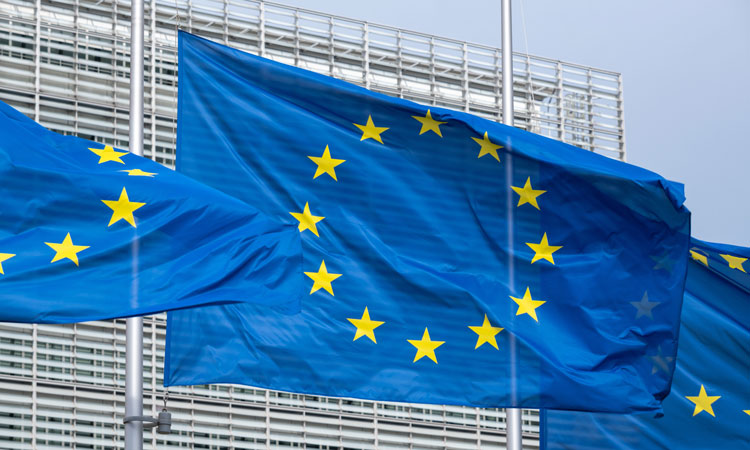The European Commission proposals – what practical impact?
Posted: 29 September 2023 | Elisabethann Wright (Cooley LLP) | No comments yet
The European Commission has published its much-anticipated proposed revisions to the EU pharmaceutical legislation. While not as extensive as some had anticipated, with elements such as the supplementary protection certificate – the demise of which has been foretold for years – continuing albeit in a different form, Elisabethann Wright, Partner, Cooley LLP, highlights several key changes.


The proposals do introduce some substantial changes, however a number of elements may be challenging to apply in practice. As an example, Article 81.1 of the draft revised Community Code provides a reduction in the basic data exclusivity period for innovative medicinal products from eight to six years, a revision which did not come as a great surprise to many. Yet in communications related to its proposals, the European Commission revealed an opportunity for marketing authorisation holders to benefit from data exclusivity periods of up to 12 years. However, in reality it would be challenging for any single application to benefit from all data exclusivity opportunities. As an example, the proposals offer the possibility of an additional six months’ data exclusivity for products intended to address an unmet medical need. They also offer the possibility of an additional six months’ data exclusivity if comparative clinical trials are conducted. However, if a product is intended to address an unmet medical need this suggests, by its very purpose, that conduct of comparative clinical trials may be complicated.
Two years to launch of proposed regulation
Fulfilling the criteria necessary for entitlement to some additional exclusivity periods may also prove challenging in practice. One of the European Commission’s declared intentions in its proposal was to make medicinal products more accessible. This is unquestionably a laudable intention. However, Article 81.2 of the draft revised Community Code provides that an additional two years of data exclusivity may be available in relation to a medicinal product launched in all 27 EU Member States covered by the marketing authorisation within two years from the marketing authorisation, or within three years for SMEs, not-for-profit entities or “companies with limited experience in the EU system”, may be difficult to achieve in practice.
For instance, there is no definition in the proposed Directive of when a medicinal product is to be considered launched. This could potentially be anything from a declaration of intent by the marketing authorisation holder to supply the product on the territory of all EU Member States, the grant of pricing and reimbursement in relation to the product by the competent national authorities, or the physical supply of the product to hospitals, treating physicians, or pharmacies.


The proposed Regulation includes a proposal to shorten assessment periods, which is likely to be universally welcomed
The proposed Regulation includes a proposal to shorten assessment periods, which is likely to be universally welcomed
Given the role of pricing and reimbursement in any decision by marketing authorisation holders concerning launch, competent authorities of the individual EU Member States have sole power to determine pricing and reimbursement of medicinal products within their territory.
Therefore, the possibility to not only achieve agreement with said competent authorities on a medicinal product’s pricing and reimbursement status but to also then launch the products on all 27 markets may be a challenge, even for large and experienced marketing authorisation holders. When the Health Technology Assessment (HTA) Regulation, Regulation (EU) 2021/2282, enters into application in January 2025, this may well create additional delays, making the two-year deadline to launch even more challenging to respect.
There are, moreover, medicinal products for which the obligation to launch in all 27 Member States may be impossible to achieve. Marketing authorisation holders for some products, including advanced therapies, may struggle to fulfil the basic requirement of launch in all 27 countries. This is the case for products that must be administered in specific centres that will not be established in all EU Member States or are administered in a single dose.
An element of the proposal concerning this two-year exclusivity that has created debate is the reference to the fact that the two-year period will be prolonged to three years for “companies with limited experience in the EU system”. There is no discussion in either the proposal or related Commission publications concerning this criteria. Many applicants for marketing authorisation in the EU will have limited, if any, experience of any aspect of the EU.
Orphan medicinal products
An interesting element of the proposals is the dual approach that the Institution has adopted to address the issue of unmet medical need. Both the proposed Directive and the proposed Regulation include provisions governing this need. The proposed approach acknowledges that the concept of unmet medical need is not limited to rare diseases. While the proposed Regulation addresses orphan medicinal products intended to address high unmet medical needs, the proposed Directive focuses on unmet medical needs in relation to “general” medicinal products. The division, and potentially the simplification of the concept of unmet medical need to include products which, although not orphan products, could address an unmet medical need, is an attractive and welcome approach.
Neither proposal includes a definition of what constitutes unmet medical need. The preamble to the proposed Directive acknowledges that the establishment of a criteria-based definition of unmet medical need is required to incentivise the development of medicinal products in therapeutic areas that are currently underserved.
Article 83 of the draft revised Community Code provides discusses unmet medical need as an element of “general” marketing authorisation with a possibility of an additional six months’ exclusivity available for medicinal products that address such a need. The proposed Regulation, which would repeal the current orphan medicinal products regulation and incorporate its principles into a new European Medicines Agency (EMA) regulation, focuses rather on rare diseases and “high unmet medical need”. While the proposed revisions to the orphan medicinal product rules provided in Chapter VI of the proposed EMA Regulation would reduce the current 10 year exclusivity period to nine years, this period can be increased where, among other criteria, the product is intended to address a high unmet medical need.
As with products authorised on the basis of the proposed Directive, orphan medicinal products may benefit from an additional two years’ exclusivity if they are launched in all 27 Member States within two years of authorisation. As discussed, the feasibility of this remains to be seen.
Reduced marketing authorisation assessment periods
The proposed Regulation includes a proposal to shorten assessment periods, which is likely to be universally welcomed. The EMA would have 180 days to complete its assessment regarding a positive or negative opinion instead of the current 210 days. The European Commission would then have 46 days, rather than the current 67, to decide whether to grant a marketing authorisation.
These decreased assessment periods are, in the view of the European Commission, attainable in part due to the anticipation that the ‘clock stops’ that can currently lengthen the review period will be reduced owing to the proposed strengthening of EMA scientific support to developers of medicinal products. As this is expected to improve the quality of initial applications, reduction in delays caused by clock stops and expedited evaluations for marketing authorisation are anticipated. As clock stops tend to be driven by unique circumstances related to individual applications, a decrease in review periods, while welcome, may not have real practical effect in many instances.
Antimicrobial resistance measures
Among the innovative and welcome provisions in the proposals are a series of measures to combat antimicrobial resistance and to encourage development of innovative antimicrobials. This includes introduction of a transferable data exclusivity voucher available to those antimicrobial products that bring a significant clinical benefit with respect to antimicrobial resistance.
A novel aspect of the related proposal is that the developer of the antimicrobial in relation to which a voucher is provided can either use the voucher for one of its own products or sell it to another marketing authorisation holder. This approach sounds as if it has potential to create a trade in vouchers. As a total maximum of 10 vouchers will be granted over a period of 15 years this would appear unlikely.
Temporary emergency marketing authorisations
There has been substantial discussion concerning the implications of the proposed temporary emergency marketing authorisations (TEMA) that would be granted by the European Commission to address public health emergencies. The proposed TEMAs discussed in Section 3 of the proposed EMA Regulation appear to be a response to the individual, and sometimes inconsistent, responses by EU Member States to the COVID-19 pandemic. Although it is fervently hoped that use of the TEMA procedure should be rare, a procedure that applies consistently to the whole EU has welcome potential.
Events that are considered to constitute a public health emergency are defined in the proposed Directive while related procedures would be governed by the draft Regulation. However, the circumstances in which TEMAs could be granted by the European Commission would be limited in both scope and duration. They would be granted only if the benefit of the immediate availability of a medicinal product in relation to the public health emergency outweighs the risk, due to fact the data may not be available yet. These criteria appear to reflect Article 14-a of the existing EMA regulation governing conditional marketing authorisation, a provision that was the basis on which all COVID-19 vaccines have been authorised to date.
The European Commission has evidently expended significant effort in developing the proposals. The debate concerning their practical application, however, will likely take some time to complete.
About the author
Elisabethann Wright, Partner, Cooley LLP
Specialising in EU law and regulation of pharmaceuticals and medical devices, Elisabethann is regularly sought after and praised for her knowledge of legislation, technical competence and commercial acumen. She has been practicing in the life sciences sector for over 35 years in private practice and international institutions. She helps clients navigate the process and regulations to place and keep their products on the EU market through strategic advice, advocacy before institutions and agencies, and litigation before EU courts.









